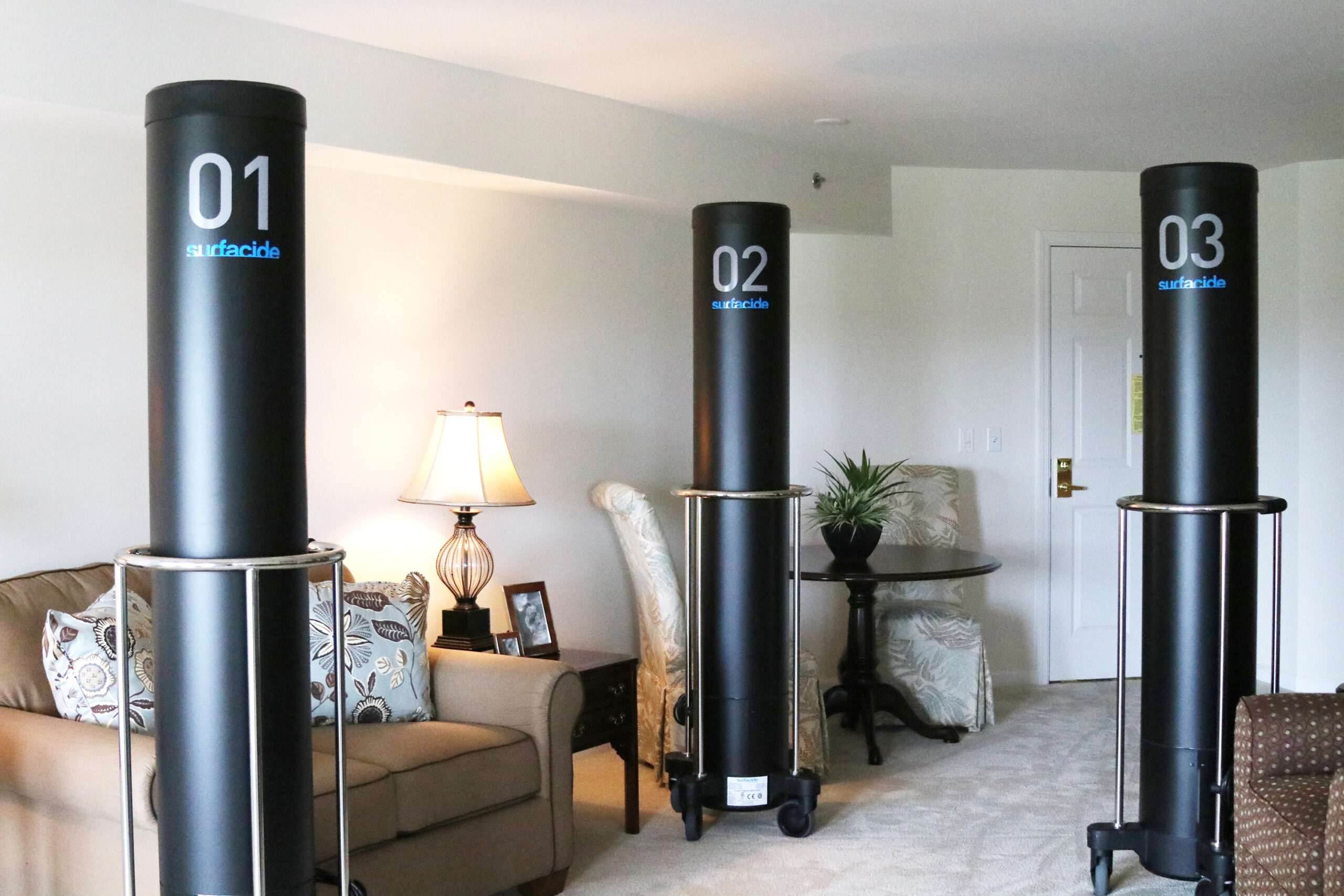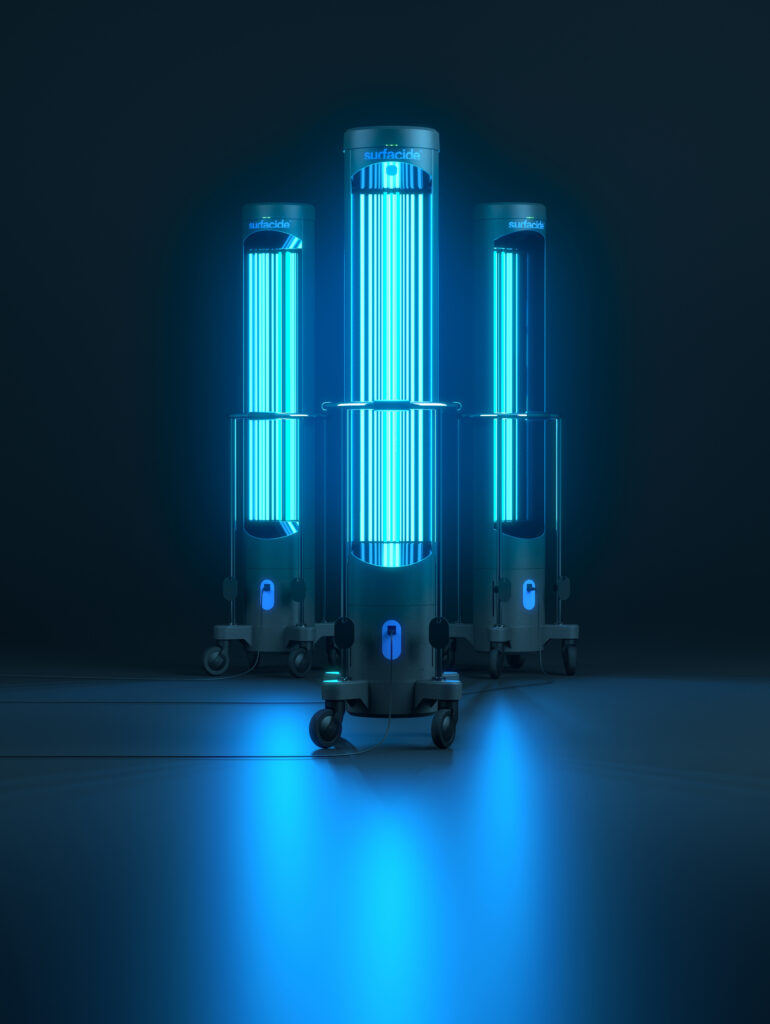
HARTSFIELD VILLAGE USES INNOVATIVE UV-C LIGHT TECHNOLOGY TO PROTECT PATIENTS
It’s set up like a scene out of a sci-fi movie. Colorless, odorless germs and bacteria, invisible enemies, are hiding in plain sight. Three ominous floor-to-ceiling UV-C high-tech robots are sent on a mission: to destroy these multi-drug resistant organisms that can make you sick.
At Hartsfield Village’s continuing care retirement community it is not a movie; it’s reality. These robots are the heroes of the story. Called the Surfacide Helios system, they continue to successfully complete their mission and are helping to keep residents and rehabilitation patients safe.
Hartsfield Village is part of the Community Healthcare System and features much of the same high quality health and infection control practices as found at Community Hospital, Munster, St. Catherine Hospital, East Chicago, St. Mary Medical Center, Hobart, and the Community Stroke & Rehabilitation Center in Crown Point.
“After Hartsfield trialed the Surfacide UV-C equipment, we immediately decided to purchase the technology for routine use on our campus, primarily to assist in COVID-19 prevention,” said Leslie Darrow, vice president Post-Acute Care Services, Community Healthcare System. “This technology has been a very important factor in our tremendous success in protecting our community from the coronavirus and other viruses.”
With the push of a button, Helios provides an automated ultraviolet or UV-C decontamination technology that significantly reduces bacteria, spores and viruses such as C. diff, MRSA, VRE, CRE and COVID-19. It adds another layer of safety and infection prevention to Hartsfield Village’s already stringent environmental cleaning practices.
UV-C light destroys the molecular bonds that hold together the DNA that makes up viruses and bacteria. UV-C light is a particularly good option for decontamination because it inactivates bacteria regardless of drug resistance and without toxic chemicals. The three tandem robots are set inside the area or space to be decontaminated and the door is shut. The machines emit UV-C light into the empty room. The light reaches into hard-to-reach areas such as open drawers and between cabinets and fixtures. The light waves inactivate bacteria by disrupting their DNA. In a large space,Surfacide’s multiple emitters are positioned closer to high-touch surfaces delivering more energy throughout the room in a single cycle. Smaller rooms such as a bathroom may need only a single emitter. Progress can be viewed and managed on a single control tablet.
“All levels of care at Hartsfield Village (independent living, assisted living, memory support, rehabilitation and nursing care) use the Surfacide system,” Darrow said. “The technology can be used in locations that are able to be secured (doors shut or closed in). For example, we would not be able to use the system in a large open common area. To measure effectiveness, Surfacide provides us with a routine utilization report which highlights our cycle results by location, by user and with emitter count.”
The technology has been available for a few years, but more recently has mainly been used by hospitals and institutions for rapid decontamination of imaging equipment.
A recent study conducted by Columbia University Irving Medical Center in California showed that more than 99.9 percent of seasonal coronaviruses present in airborne droplets were killed when exposed to a particular wavelength of ultraviolet light and is safe to use around humans.
UV-C light is just one of numerous methods hospitals and long-term continuous care facilities can add to standard disinfection regimens to continue to cut infection rates for all pathogens, including drug-resistant organisms. Strategies such as stringent hand-washing, precautions for staff contact with infected patients and prudent use of antibiotics in patients also play a role.
For more information about the programs and services available at Hartsfield Village Continuing Care Retirement Community, visit hartsfieldvillage.com or call 219-934-0750.

